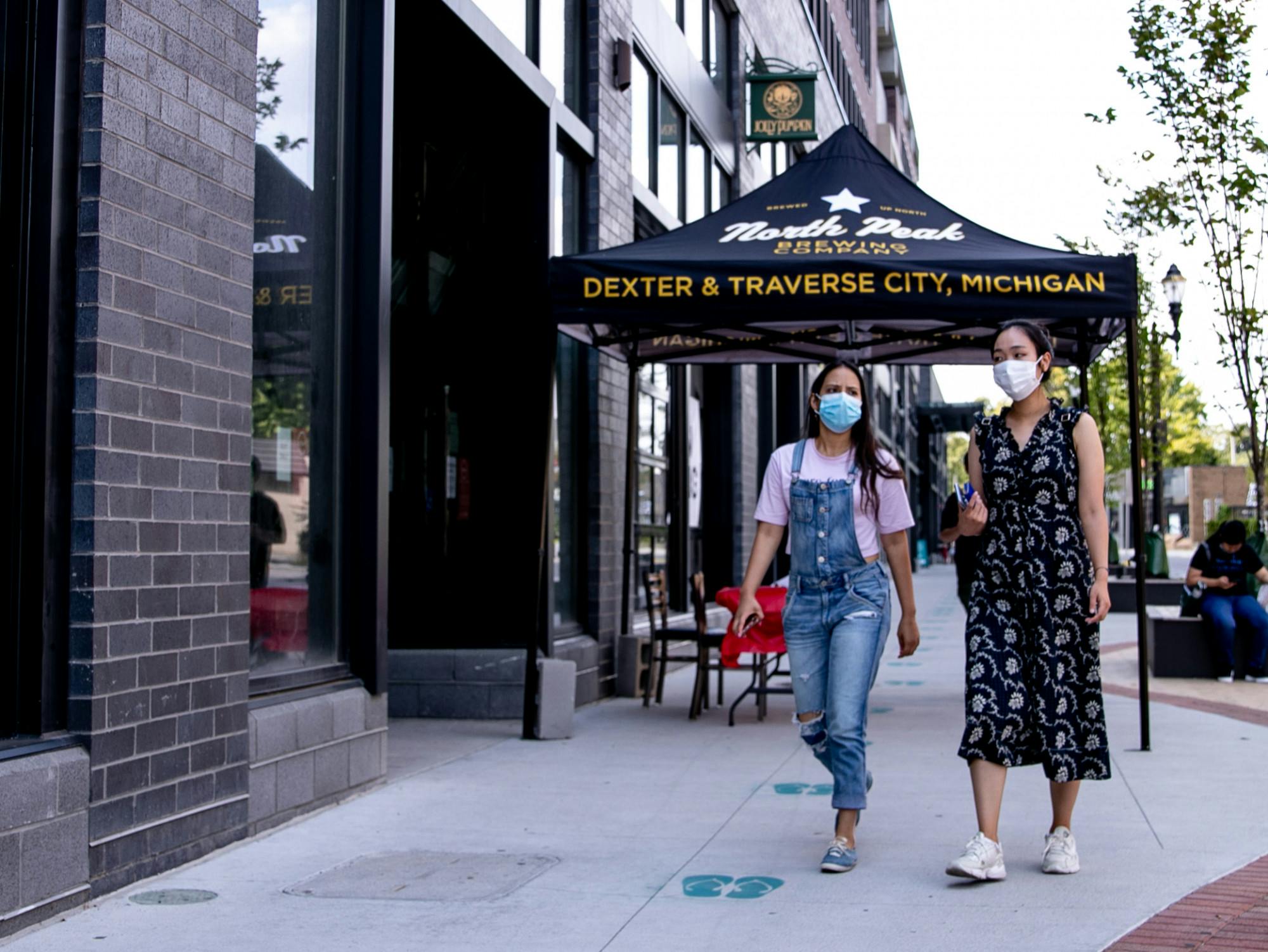Seven months ago, incoming freshman Jimena Garcia’s college plans looked vastly different. She was excited to head out-of-state on a new adventure attending Loyola Chicago on a partial scholarship.
Then her life, like the rest of the world's, was sent spinning in confusion as she tried to navigate a global pandemic. Her senior year of high school, senior season of track and all she looked forward to for years were just gone, seemingly in an instant, with a drive-by graduation as a feeble consolation to the end-of-year experiences she deserved.
Garcia knew that she had some decisions to make financially. So, with the care Michigan State provided and the less-costly in-state tuition, she found herself enrolling to become a Spartan.
Planning to major in environmental engineering, Garcia is one of many first-generation students taking the plunge into the unknowns of college, being the first in their family to attend and navigate their way to a higher education. Statistically, first-generation students make up nearly a third of all undergraduate students, according to an Education Advisory Board article.
Many first-generation students also struggle to find their way through college compared to their counterparts who have parents that already experienced the trials and tribulations of college life. Now, Garcia and her peers have the challenge of maneuvering through uncharted territory with school and the unprecedented times of a global pandemic.
Garcia said she has reached out to other students in her courses to prepare for her first semester at MSU.
“I mean, it’s still going to suck not really being able to hang out with them as much as I could be because of social distancing and stuff," Garcia said. "It’s definitely going to be just really different and a bigger change now than what it usually is just because of all the rules and not knowing.”
While Garcia has been able to get into contact with some students to prepare, ask friends for advice and watch TikTok videos of what to bring to her dorm, she still thinks about the dozens of unanswerable questions, which has left her feeling out of the loop and worried about the foreseeable future.
“So, me completely going in with my eyes closed, hands tied, basically jumping into the ocean, it’s really scary in all honesty," Garcia said. "I’m really scared. So I feel like ‘oh no, maybe I’m not going to make it. Maybe I should just go to a community college' because the other thing is I don’t want to let my mom down. My parents have given up everything for me to get a good education and for me to have a good life and it’s just hard. I’m scared.”
Garcia’s concerns are ones that many first-generation students share. A 2018 study from the Department of Education’s National Center for Education Statistics (NCES) showed that nearly 50% of first-generation students attend community college while only 26% attend public universities compared to their counterparts' 45% attendance.
Incoming freshman Deborah Ileanna Hotupan is in a similar situation as Garcia. As a first-generation student, she has found herself on the outside looking in when comparing herself to other incoming freshman.
Hotupan is not only a first-generation student, but also a first-generation citizen. Her parents came to America from Romania about 25 years ago in search of a better life for their family. Because her parents don’t have any experience when it comes to college, Hotupan has found herself preparing for college differently than others, working on her financial work alone and being her own navigator.
“I definitely feel like I’m out of that (loop)," Hotupan said. "A lot of people — their parents went to school and stuff like that, but I won’t have that either. There’s definitely a lot that I feel like I’m not able to relate to that other people my age are, especially at State.”
In 2019, 21.2% of incoming MSU students identified as first-generation. Though all first-generation students don't struggle transitioning to college, the lack of parental experience in college life makes them more likely to fall behind at first. Sophomore Alexandra LaLonde, who entered as a first-generation student in 2019, learned this quickly.
“I feel like, in general, college in the beginning, first semester, was pretty difficult for me,” LaLonde said, “I did struggle a little bit academically, which is something that I've never (done). I had over a four-point (GPA) in high school. I did everything I could. In college in my first semester, it wasn’t so hot. So, that was kind of an adjustment having to do everything on my own and stuff like that.”
LaLonde, who is majoring in neuroscience, did however adjust as quickly as she fell. She said she learned that no one could be great for her and that no one was going to hold her hand through this process. She learned she had to advocate for herself.
“I work on campus, so like I’m really close with my boss and she also helps me navigate things," LaLonde said. "I’m in a few organizations where I have advisers and staff that I reach out to, so I’m pretty much just advocating for myself. If there’s something I don’t know I try to figure it out because I know that no one else is going to do it for me. … Regardless if you’re a first-generation student or not, nobody really knows. There’s not a guideline of how to handle anything right now.”
Although the start to her college experience was a struggle, LaLonde found the resources she needed and utilized them.
“It was difficult in the beginning and even now. Because my parents didn’t go to college, they don’t understand the importance of stuff like even college life and the social aspect of that,” LaLonde said. "They also don’t know how to navigate anything like that, like student portals. … As a freshman there’s some things you just don’t know how to do, and you’re parents never have done it either. So, that was challenging, but again, advisers (helped) and there’s really good resources on campus if you utilize them correctly.”
Self-advocating is a trend in these first-generation students. These students — through their experiences, parents and sharp, personal ambition for a better life — persevere through their time in college, learning as they go.
Support student media!
Please consider donating to The State News and help fund the future of journalism.
Coming from a small town, LaLonde said her drive comes from proving to herself and her siblings that despite someone’s background, they can achieve their goals.
Hotupan said she shares the drive of her parents who ventured here from Romania. She has talked about the future with them while still becoming independent.
“They’re pretty supportive on me going on my own because obviously they left their parents and went on their own to come here," Hotupan said. "So, basically just talking about that aspect and how I’m doing what they did, but not to the same extent of leaving the country. It’s forced me to gain independence through their independence. I’m definitely a very independent person because of them, and it makes me feel more comfortable going on to moving to State for sure.”
After changing her college plans mid-quarantine, Garcia feels the pressure on herself to succeed. While she has support from her family, she also feels the external pressures of their pathways. Garcia’s motivation lies in the roots of her family and the desire for a better life.
“Lots of my family just kind of said ‘No, don’t go. Just stay and work’ type of thing and that’s also another thing that motivates me to go is I’m not just gonna follow their pathway,” Garcia said. “I’m not gonna live bill to bill, job to job, like I want to go to school. I want to get a degree. I want to get a nice high-paying job because I have a nice degree. It really truly is pushing me, even though we’re in the pandemic, even though I don’t really know what I’m doing. I guess I’m just gonna go in and hope for the best because I really want to make a better life for myself.”
This article is part of our Welcome Week print edition. Read the full issue here.
Discussion
Share and discuss “'Into the unknown': 1st-generation students navigate college, pandemic” on social media.








